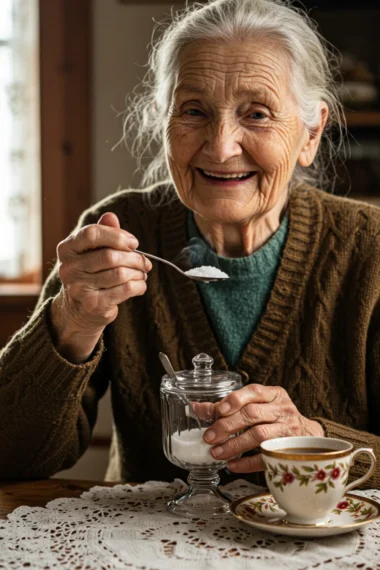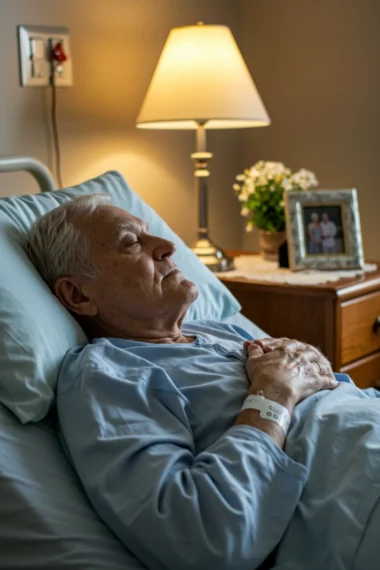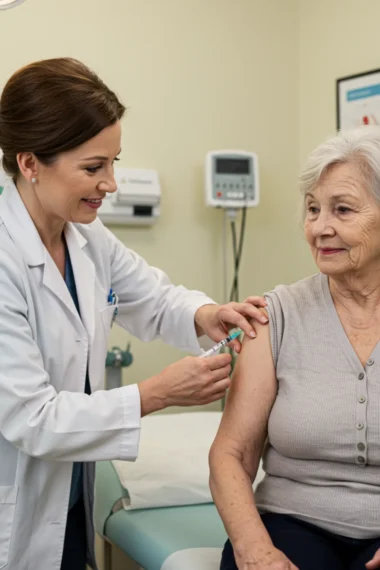What Is Considered Low Blood Pressure for Seniors?
According to the National Heart, Lung, and Blood Institute (NHLBI), normal blood pressure is less than 120/80 mmHg. Low blood pressure, also called hypotension, is generally defined as a reading below 90/60 mmHg. For seniors, this threshold can be especially concerning, since even moderate drops in blood pressure may lead to dizziness, fainting, or dangerous falls. Understanding what’s considered low blood pressure for seniors helps families, caregivers, and older adults take proactive steps to stay safe and healthy.
Low Blood Pressure Guide for Seniors: What’s Considered Too Low?
Blood pressure isn’t just a number on a monitor — it’s a key indicator of how well your heart, brain, and other organs are receiving oxygen and nutrients. As we age, our bodies handle blood pressure changes differently, making seniors more vulnerable to the effects of low blood pressure.
What Is Considered Low Blood Pressure for Seniors?
Most doctors agree on a general definition:
- Normal blood pressure: below 120/80 mmHg
- Elevated blood pressure: 120–129/<80 mmHg
- Hypertension (high BP): 130/80 mmHg or higher
- Hypotension (low BP): less than 90/60 mmHg
For seniors, however, the situation is more nuanced.
- A blood pressure reading of 90/60 mmHg or lower is typically considered low.
- But in people over 65, symptoms matter more than numbers. For example, an 85-year-old with a reading of 95/65 mmHg who feels fine may not need treatment. On the other hand, a 70-year-old with 105/70 mmHg who feels dizzy may be experiencing dangerous hypotension.
For seniors, low blood pressure isn’t just about numbers — it’s about how the body responds.
Common Causes of Low Blood Pressure in Seniors
Low blood pressure in older adults can stem from several factors. Here are 7 major causes:
- Dehydration – Seniors often feel less thirsty, making dehydration a common trigger.
- Medication side effects – Drugs for high blood pressure, depression, Parkinson’s, and heart disease may lower blood pressure too much.
- Heart problems – Conditions like arrhythmias, heart valve disease, or heart failure can reduce blood flow.
- Endocrine disorders – Thyroid disease, diabetes, and adrenal issues affect blood pressure regulation.
- Nutritional deficiencies – Lack of vitamin B12 or folic acid can cause anemia, leading to hypotension.
- Postural changes (orthostatic hypotension) – A sudden drop when standing up, often linked to age-related blood vessel stiffness.
- Severe infections or shock – Life-threatening conditions like sepsis may drastically lower blood pressure.
Symptoms of Low Blood Pressure in Seniors
While some seniors may not notice anything, others may experience symptoms that put them at risk. The 8 most common signs include:
- Dizziness or lightheadedness
- Blurred vision
- Confusion or difficulty concentrating
- Fainting (syncope)
- Fatigue or weakness
- Nausea
- Cold, clammy skin
- Rapid, shallow breathing
A 75-year-old who feels dizzy after standing up may be experiencing orthostatic hypotension, which is a common type of low blood pressure in seniors.
More Opportunities: Parkinson’s Leg Pain: What It Feels Like & Effective Ways to Cope
Risks of Low Blood Pressure in Seniors
Low blood pressure isn’t always harmless. In older adults, it carries some serious risks:
- Falls and fractures – Sudden dizziness can cause dangerous falls, which are a leading cause of hospitalization in seniors.
- Reduced organ perfusion – Very low blood pressure can deprive the brain, kidneys, and heart of blood flow.
- Cognitive decline – Chronic low blood pressure may be linked to memory problems and dementia risk.
- Heart complications – In seniors with existing heart disease, low blood pressure increases risk of heart failure.
According to the Centers for Disease Control and Prevention (CDC), falls among older adults result in 36 million incidents annually in the U.S., with more than 32,000 deaths each year. Low blood pressure is a significant contributor.
When Should Seniors Seek Medical Help?
It’s important not to ignore ongoing low readings. Seniors should call their doctor if they experience:
- Frequent dizziness or fainting
- Blood pressure consistently below 90/60 mmHg
- Confusion, chest pain, or shortness of breath
- Severe fatigue interfering with daily life
Emergency care is needed if low blood pressure is accompanied by shock symptoms: weak pulse, clammy skin, or rapid breathing.
Treatment & Management of Low Blood Pressure in Seniors
Treatment depends on the cause, but here are some effective strategies:
1. Lifestyle Adjustments
- Drink more water to prevent dehydration.
- Eat smaller, more frequent meals to reduce post-meal drops.
- Stand up slowly to avoid sudden drops.
- Elevate the head of the bed to prevent overnight drops.
2. Dietary Changes
- Increase salt intake if recommended by a doctor.
- Add more potassium-rich foods (bananas, oranges, spinach).
- Ensure enough B12 and folate to prevent anemia.
3. Medication Adjustments
Doctors may change or lower doses of medications that contribute to hypotension.
4. Supportive Aids
- Compression stockings help prevent blood pooling in the legs.
- Physical therapy may improve circulation and balance.
Tips for Caregivers Managing a Senior with Low Blood Pressure
Caregivers play a critical role in managing seniors’ blood pressure. Practical steps include:
- Monitoring blood pressure at home with an easy-to-read device.
- Keeping a diary of readings and symptoms to share with the doctor.
- Encouraging slow movements when standing or sitting.
- Making sure hydration and nutrition are a daily priority.
- Watching for medication side effects.
Final Thoughts
Low blood pressure in seniors isn’t always dangerous, but it can become a serious issue when symptoms like dizziness, fainting, or confusion appear. For most seniors, below 90/60 mmHg is considered hypotension, but the most important factor is how the body responds.
By staying alert to symptoms, adjusting lifestyle habits, and working closely with healthcare providers, seniors and caregivers can manage low blood pressure safely — protecting both independence and quality of life.
FAQs
What blood pressure is too low for an 80-year-old?
A reading consistently below 90/60 mmHg is generally too low, especially if symptoms like dizziness or fainting occur.
Can low blood pressure cause dementia?
Research suggests chronic hypotension may reduce blood flow to the brain, potentially contributing to memory loss over time.
Should seniors eat more salt for low blood pressure?
Some seniors may benefit, but salt intake should only be increased if advised by a doctor — especially if heart disease is present.
Is 100/65 mmHg dangerous for seniors?
Not necessarily. If the person feels fine, it may be normal for them. But if symptoms occur, it could signal a problem.











